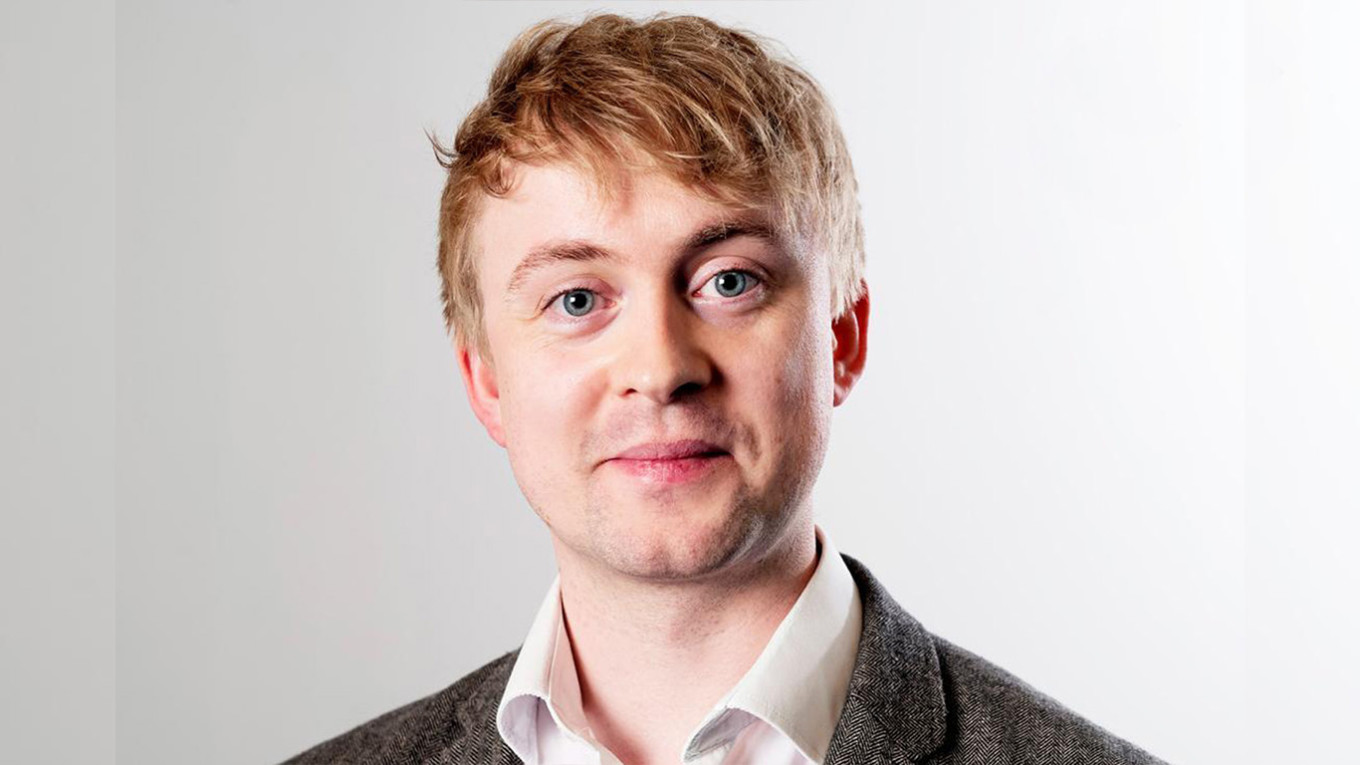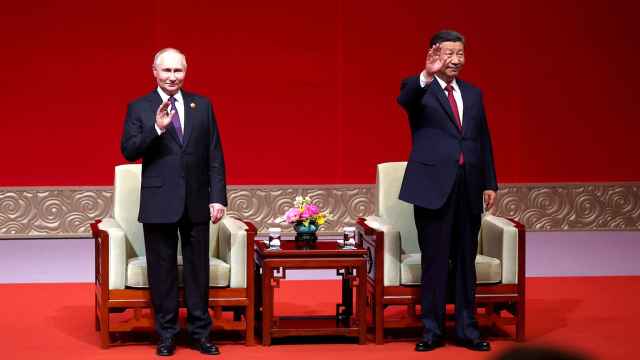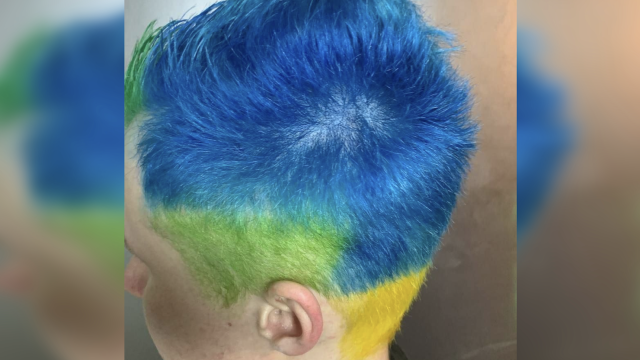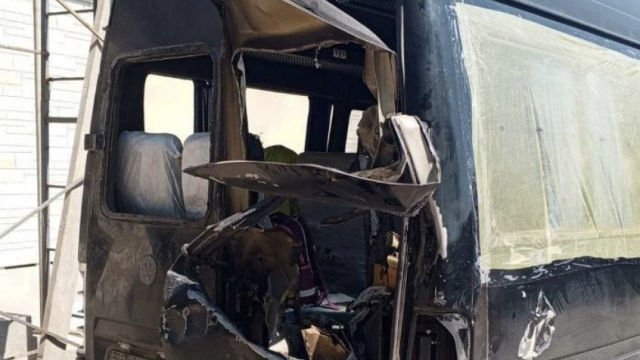Friends, family and colleagues paid tribute to David Knowles, the creator and co-host of The Telegraph’s award-winning podcast Ukraine: The Latest, at his funeral Thursday following his unexpected passing at age 32.
Knowles’ death during a short trip to Gibraltar on Sept. 8 left his colleagues and listeners in shock, with many learning of his passing on what was expected to be yet another news brief.
Knowles, who joined The Telegraph's social media team in 2020, launched Ukraine: The Latest on Feb. 24, 2022, the day Russia invaded Ukraine.
As the war raged, the podcast became part of many people’s daily routine, with listeners tuning in to hear familiar voices providing a semblance of sense and comfort amid the destruction and uncertainty of the war.
Today, his desk at The Telegraph remains adorned with sunflowers and cards filled with messages of condolence: a memorial to a life lived to the fullest despite being cut short too soon.
Knowles’ funeral, held at St. Bride’s Church in central London on Thursday morning, was attended by his colleagues and friends and watched online by thousands.
His casket, decorated with yellow and blue flowers in the colors of the Ukrainian flag, was a gift from the Ukrainian Embassy in London and served as a poignant reminder of his deep love for the country.
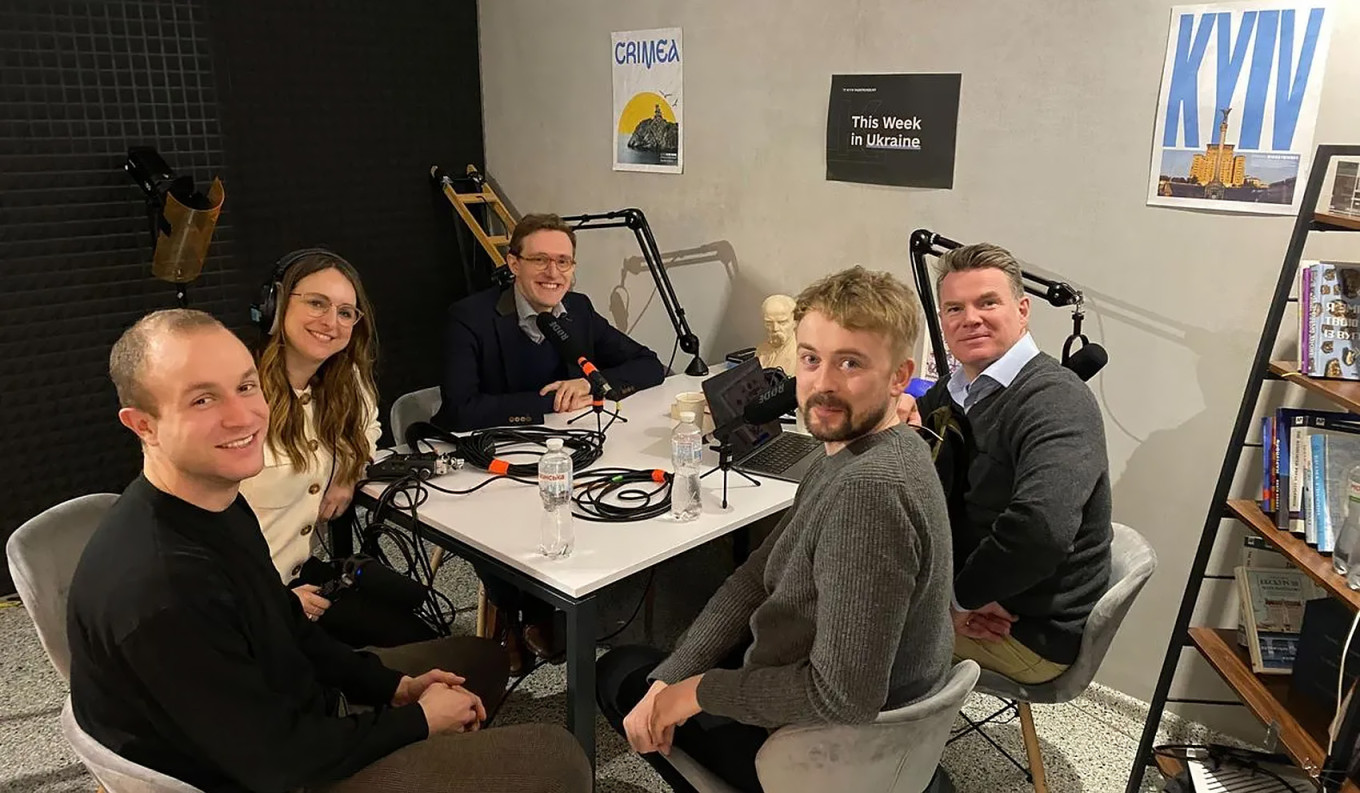
The church’s halls were filled with tears, smiles and laughter as those close to Knowles reminisced about his love of theology, history and journalism. Key speakers included his family and his podcast co-hosts Francis Dearnley and Dominic Nicholls.
The church, long associated with journalists and newspapers due to its location on Fleet Street, had earlier placed a memorial candle and Knowles’ portrait alongside memorials of other journalists who have perished in the line of duty.
Carrying on the mantle
Before the funeral, Nicholls and Dearnley told The Moscow Times about Knowles’ legacy and the future of Ukraine: The Latest.
“After David’s passing, we had actually planned to have a very low-key week with just very basic updates,” said Nicholls. “Then we all came in on Tuesday and we all felt particularly energized, and decided to get straight back on the horse. We thought: ‘We’re not going to stop, because that would be incorrect. That's not the ethos David started the podcast with.’”
Nicholls said that he and Dearnley continue to be thankful and overwhelmed with hundreds of messages of gratitude from listeners of the podcast.
“I've still got well over 600 unread emails in my special ‘David’ folder,” said Nicholls.

Dearnley said that the duo plans to continue the podcast true to the nature in which Knowles created it.
“Together the three of us were always thinking about ways the podcast could naturally evolve, so there may well be some additions we make over time, we intend to continue it very much as David created the podcast. Both in terms of format, tone and sensitivity to the human cost of war — something he cared about deeply.”
The journalists said they would continue expanding the podcast’s topics based on how the war develops, adding that there is a need to explore geopolitical events beyond Ukraine’s border to give their audience a fuller picture of how international events — including Russian politics — can impact developments on the front line.
“As journalists, it would be wrong for us [to omit Russian politics]. Western politicians follow what happens in the Kremlin, which in turn impacts what happens in Ukraine,” said Dearnley.
Nicholls nodded in agreement.
“International affairs are relevant to the war in Ukraine,” he said. “Of course, it is a little bit of a diversion, a little bit of an indulgence. But if you do it with journalistic integrity, and if you've done it for a reason, and it’s interesting and engaging and relevant to a sophisticated consumer of defense and security and foreign policy journalism, then we'll do it.”
A Message from The Moscow Times:
Dear readers,
We are facing unprecedented challenges. Russia's Prosecutor General's Office has designated The Moscow Times as an "undesirable" organization, criminalizing our work and putting our staff at risk of prosecution. This follows our earlier unjust labeling as a "foreign agent."
These actions are direct attempts to silence independent journalism in Russia. The authorities claim our work "discredits the decisions of the Russian leadership." We see things differently: we strive to provide accurate, unbiased reporting on Russia.
We, the journalists of The Moscow Times, refuse to be silenced. But to continue our work, we need your help.
Your support, no matter how small, makes a world of difference. If you can, please support us monthly starting from just $2. It's quick to set up, and every contribution makes a significant impact.
By supporting The Moscow Times, you're defending open, independent journalism in the face of repression. Thank you for standing with us.
Remind me later.



